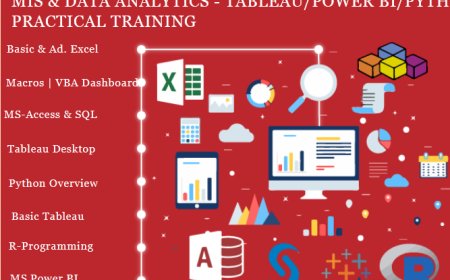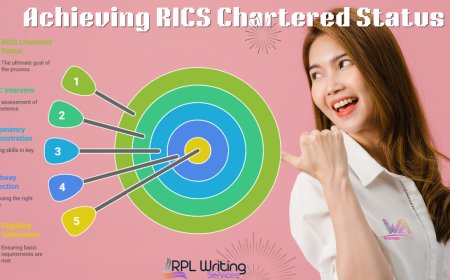Can Government Employee Do Trading? Full Guide
Wondering can government employee do trading? Learn rules, tips, and the best course for trading and stock trading courses for safe investment.

Can Government Employee Do Trading? A Complete Guide
Introduction
Have you ever wondered if a government employee in India can participate in stock trading or invest in the share market? It's a common curiosity, especially as more people become financially aware and seek multiple income streams. With social media full of trading gurus and everyday investors sharing their gains, even government employees are beginning to explore their options.
But here's the catchare they allowed to trade legally? If yes, to what extent? And whats the safest way to start? Thats what were about to unpack.
Lets dive into the facts, laws, and best course for trading or stock trading courses that can help government employees trade wiselywithout crossing any legal lines.
Wondering can government employee do trading? Learn rules, tips, and the best course for trading and stock trading courses for safe investment.
Understanding Government Jobs in India
Government jobs are known for stability, fixed income, and a strong set of conduct rules. Whether its a central government officer, state employee, or public sector unit worker, the roles come with strict codes of ethics and professional behavior.
These jobs often require employees to avoid any activity that may create a conflict of interest or affect their integrity. So, any side activityincluding tradingis viewed carefully.
What Is Trading?
Lets break it down simply.
Trading is buying and selling financial instruments like stocks, mutual funds, or derivatives with the intent of making a profit. It can be short-term (like daily or weekly) or long-term (holding for months or years).
Imagine trading like a game of chess. Every move is strategic. Its not gamblingits calculated risk. But you must know the rules.
Can Government Employee Do Trading?
Yes, but with conditions.
A government employee can invest in the stock marketbut only as a passive investor. They cannot engage in speculative or frequent trading that appears like a business activity. The Central Civil Services (Conduct) Rules, 1964, and similar State rules clarify this.
Heres whats typically allowed:
-
Investing in stocks or mutual funds as a long-term investor
-
Holding a Demat account
-
Investing through SIPs (Systematic Investment Plans)
Heres whats not allowed:
-
Intraday trading
-
Derivatives and options trading (if done actively)
-
Acting as a professional trader
Rules and Regulations They Must Follow
Government employees must follow:
-
Rule 16 of CCS (Conduct) Rules, 1964: Prohibits speculative activity
-
Disclosure of assets: Employees must disclose investments if required
-
No conflict of interest: Avoid trading in companies you may influence
These rules aim to keep government employees focused on public service and maintain financial discipline.
Types of Trading Government Employees Can Do
Not all trading is off-limits. Heres what they can do:
? Long-Term Investing
Buying and holding shares for years is considered safe and non-speculative.
? Mutual Fund Investment
Mutual funds are managed by professionals and are low-risk.
? SIPs
Systematic investment plans are regular, automated investments.
? Index Funds/ETFs
They mimic market indices and are great for passive investors.
What They Cant Do
Heres what crosses the line:
? Intraday Trading
Buying and selling the same stock within a day = speculative.
? Frequent Buying/Selling
Trading every week or month may be seen as business-like.
? Derivatives or Options
Highly speculative and often not permitted under service rules.
Why Government Employees Want to Trade
Lets face itgovernment salaries dont always match todays lifestyle needs. Many employees are looking for:
-
Extra income
-
Wealth creation
-
Early retirement planning
-
Beating inflation
And trading (if done wisely) seems like a great tool for that. But knowledge and rules matter more than excitement.
Risks vs. Rewards
Trading can be rewarding, but its not a get-rich-quick scheme.
Rewards:
-
Potential for high returns
-
Builds financial discipline
-
Opportunity to learn finance
Risks:
-
Legal consequences for breaking rules
-
Loss of money
-
Stress and distraction from work
So, is it worth the risk? Only if done the right wayand with full awareness.
How to Trade Safely
Heres how a government employee can trade without trouble:
-
Stick to long-term investing
-
Avoid speculative tools (options, futures)
-
Keep records of all transactions
-
Stay transparent with declarations
-
Dont let trading affect job performance
Best Stock Trading Courses for Beginners
If youre serious about learning, taking a stock trading course is the best place to start. Here are some beginner-friendly options:
-
NSE Academys Certified Capital Market Professional (NCCMP)
-
Zerodha Varsity (Free)
-
Elearnmarkets - Stock Market Basics
-
Udemy Stock Trading for Beginners
-
Coursera Financial Markets by Yale
These cover topics like stock basics, technical analysis, and safe investing.
Features of a Good Trading Course
Look for the following in any course for trading:
-
Beginner-friendly content
-
Interactive modules and real-life examples
-
Certification (optional but good to have)
-
Clear focus on long-term investing
-
Access to community or mentors
Avoid courses that focus too much on intraday trading or get-rich-fast schemestheyre risky and unsuitable for government employees.
Recommended Course for Trading
For government employees, we recommend starting with Zerodha Varsityits free, comprehensive, and designed for self-paced learning.
Follow it up with NCCMP or any course from Elearnmarkets, which is SEBI-recognized and suitable for long-term learning.
Tools and Platforms Suitable for Beginners
Here are platforms that suit the needs of low-risk investors:
-
Zerodha (user-friendly interface and tools)
-
Groww (easy SIP and mutual fund investing)
-
Upstox (great mobile experience)
-
Paytm Money (low fees, simple design)
Remember to use only one account and avoid multiple loginsit can raise red flags.
Tax Implications for Government Employees
Yes, stock trading gains are taxableeven for government employees.
Capital Gains Tax:
-
Short-term (less than 1 year): 15%
-
Long-term (more than 1 year): 10% over ?1 lakh
Dividends are taxed as per your income slab.
You dont need to worry if youre investing occasionally, but consult a tax advisor if your gains increase significantly.
Final Thoughts and Recommendations
So, can government employee do trading? Absolutelyif they do it right.
-
Understand the boundaries
-
Follow the rules
-
Educate yourself before diving in
-
Stick to safe, long-term investment strategies
-
Consider enrolling in a proper course for trading
Trading can be a powerful financial tool, but it must be handled with care, especially when youre in public service. Invest smart, stay legal, and keep your peace of mind intact.
FAQs
1. Can government employees open a Demat account?
Yes, government employees can open a Demat account and use it for long-term investing.
2. Is intraday trading allowed for government employees?
No, intraday or speculative trading is not permitted under service rules.
3. What is the best stock trading course for beginners?
Zerodha Varsity and NCCMP are great beginner-friendly stock trading courses.
4. Can government employees invest in mutual funds?
Yes, mutual fund investments through SIPs or lump sums are allowed.
5. Do government employees need to disclose trading activity?
Yes, if the amount exceeds prescribed limits or if required under service rules.


























































